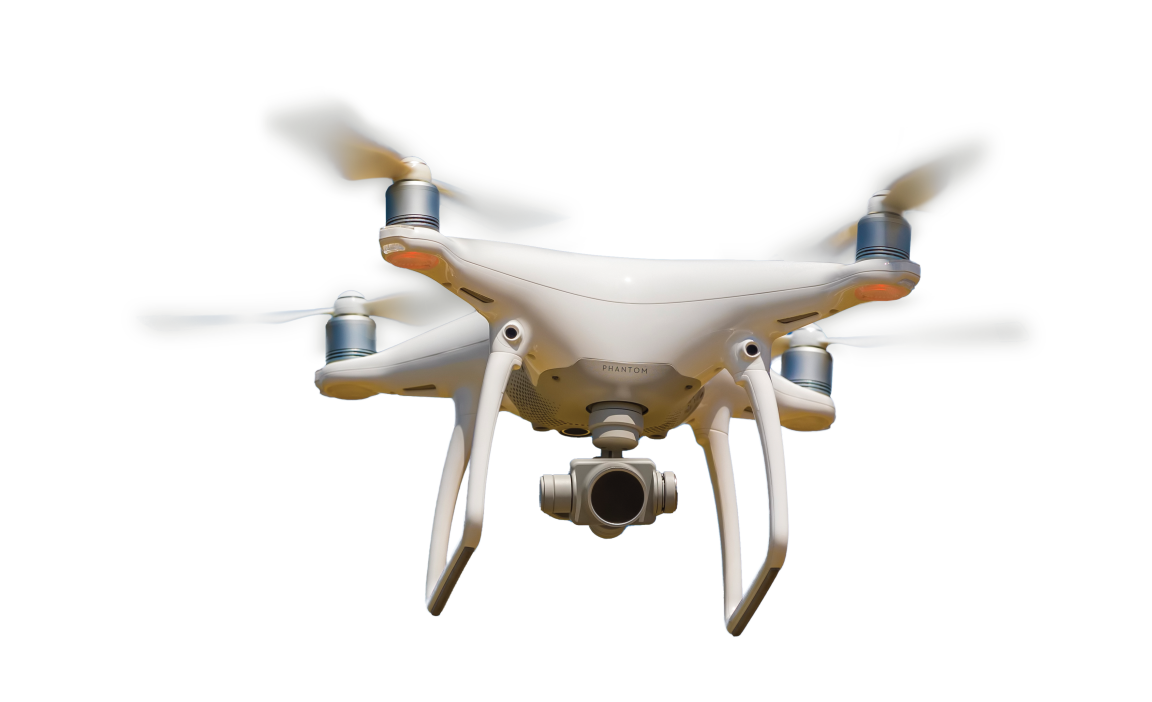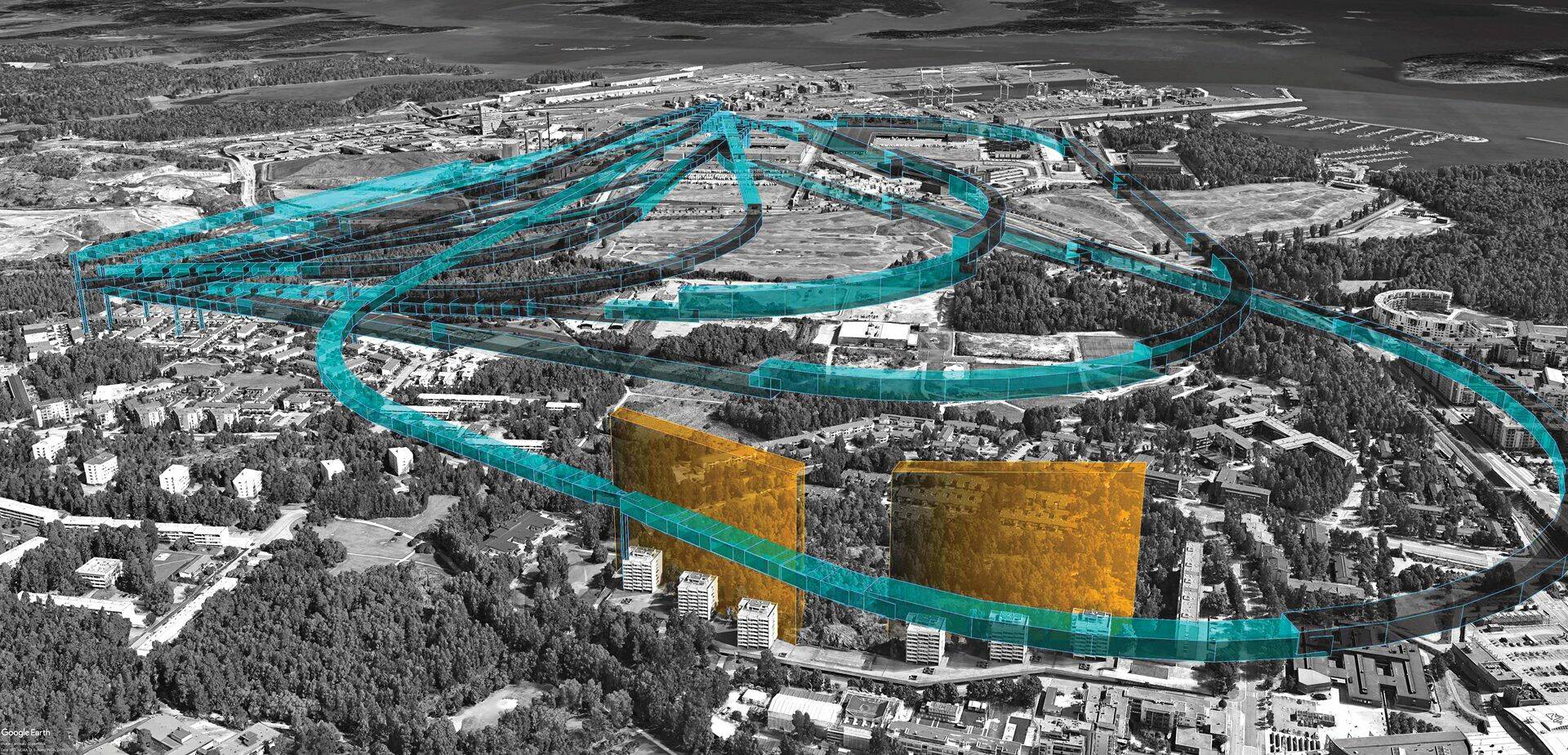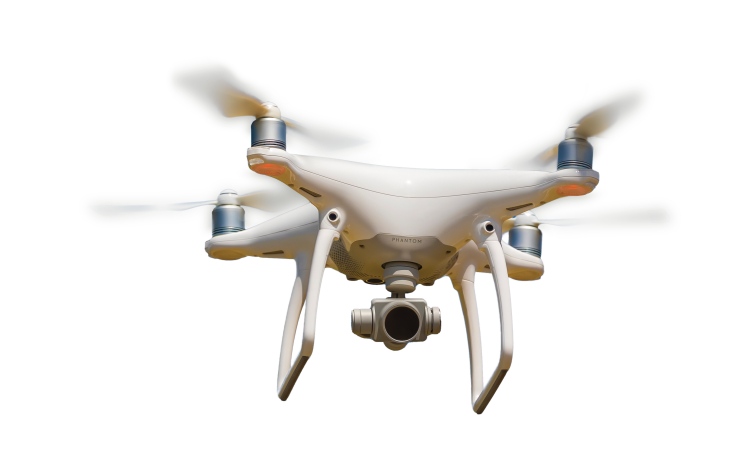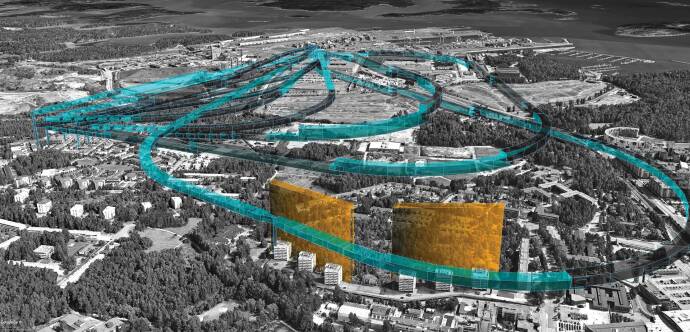



Flight paths deconflicted in 4D in an urban environment. Screenshot provided by InterUSS Platform.

Operating at scale
Moving toward a shared, rather than siloed, airspace is fundamental for leveraging the benefits of uncrewed operations at scale. Automated testing is being recognised as an essential tool with implementations spanning from Texas to Australia to Europe, and the global community is guiding this forward.
As the uncrewed industry and broader ecosystem meets at Airspace World, the scene is set for a leap forward in collaborative impact on the implementation of strategic conflict detection around the world. We encourage both industry and regulators to learn more about open-source tools for their respective needs.
As an open-source organisation, The InterUSS Platform warmly welcomes technical contributors and new members on GitHub and new members on an ongoing basis.
Testing solutions
Currently, UAS operators and service providers in the busy Dallas-Fort Worth market, serving customers within the 10,000 sq km Mode C Veil, are working to pass InterUSS’s automated testing for qualification testing of the F3548 standard. Several participants have already completed this phase and are now on to ecosystem testing.
These testing solutions assure operators that their strategic conflict detection software is working properly for safe UAS flights in shared airspace. In this case, open-source automated testing is being leveraged as a means of compliance and industry self-governance for strategic conflict detection. More about this collaboration will be shared at Airspace World, but the industry needs interoperability now.
In fact, interoperability is an essential cornerstone of shared skies. To move forward as an ecosystem, we must work with a democratised approach, centred on being open, fair and adaptable to the pace of innovation. With industry consensus, open standards, open-source resources, and transparency in learnings, we can do so with ease. We have a unique opportunity right now to build a path for trust, security and scalability in interoperability, and make the airspace accessible to everyone.
With that path, the uncrewed ecosystem can collaborate effectively, accelerate technology adoption, facilitate cross-border harmonisation, support a diverse market of UAS services, and operationalise standards for interoperability.
Conflict detection
According to ICAO, strategic conflict detection is a pre-flight service consisting of the arrangement, negotiation, and prioritisation of intended operational 4D volumes, routes, or trajectories of emerging aircraft operations to minimise the likelihood of airborne conflicts between operations.
The ecosystem is ready for this moment. Operators, service providers, regulators, standards organisations, and open-source organisations have had this milestone in their sights for several years, developing standards, mapping regulations to these standards, working to harmonise UTM/U-space globally, and engineering practical resources.
In 2022, the ASTM (American Society for Testing and Materials) International F38 Working Group on UTM Interoperability’s F3548 standard established a digital exchange that aligns to key regulations and provided the clarity to ready the ecosystem for scaled operations in shared skies – the reality of 2024.
The InterUSS Platform, founded as a Linux Foundation project in 2019, provides an open-source test suite to enable service providers (USPs/USSPs) to test their services against each other. It can be used by authorities to automatically onboard service providers, and to perform continuous monitoring of the service performances at service provider level. The InterUSS Platform also provides an open-source Discovery and Synchronisation Service (DSS) to support the data exchange between qualified service providers, enabling both network remote identification and strategic conflict detection.
Recent demonstrations, such as the UTM Field Trial in the US in 2023, have put all these resources into practice, laying the groundwork for practical implementation, starting with coordinated simulations and then integrating strategic conflict detection into live flights and day-to-day operations.
After months of significant regulatory and commercial milestones for uncrewed aviation driving this moment closer, stakeholders across aviation have been preparing for scaled operations to become the norm. What has often been a patchwork of separated services stands at the precipice of being interwoven.
As commercial drone service operations expand, and eVTOL (electric vertical take-off and landing) certification, infrastructure, and testing increasingly gain more momentum these uncrewed operations will inevitably move geographically closer to each other, and even overlap. By sharing the airspace, uncrewed operations can better serve their communities, providing different types of services or options of services for the same community. This works by detecting, and deconflicting from, each other’s operations.
Chris Clark, InterUSS Platform Program Manager, Linux Foundation says trust is essential to harmonising strategic conflict detection.







Moving toward a shared, rather than siloed, airspace is fundamental for leveraging the benefits of uncrewed operations at scale. Automated testing is being recognised as an essential tool with implementations spanning from Texas to Australia to Europe, and the global community is guiding this forward.
As the uncrewed industry and broader ecosystem meets at Airspace World, the scene is set for a leap forward in collaborative impact on the implementation of strategic conflict detection around the world. We encourage both industry and regulators to learn more about open-source tools for their respective needs.
As an open-source organisation, The InterUSS Platform warmly welcomes technical contributors and new members on GitHub and new members on an ongoing basis.
Operating at scale
Currently, UAS operators and service providers in the busy Dallas-Fort Worth market, serving customers within the 10,000 sq km Mode C Veil, are working to pass InterUSS’s automated testing for qualification testing of the F3548 standard. Several participants have already completed this phase and are now on to ecosystem testing.
These testing solutions assure operators that their strategic conflict detection software is working properly for safe UAS flights in shared airspace. In this case, open-source automated testing is being leveraged as a means of compliance and industry self-governance for strategic conflict detection. More about this collaboration will be shared at Airspace World, but the industry needs interoperability now.
In fact, interoperability is an essential cornerstone of shared skies. To move forward as an ecosystem, we must work with a democratised approach, centred on being open, fair and adaptable to the pace of innovation. With industry consensus, open standards, open-source resources, and transparency in learnings, we can do so with ease. We have a unique opportunity right now to build a path for trust, security and scalability in interoperability, and make the airspace accessible to everyone.
With that path, the uncrewed ecosystem can collaborate effectively, accelerate technology adoption, facilitate cross-border harmonisation, support a diverse market of UAS services, and operationalise standards for interoperability.
Testing solutions
Flight paths deconflicted in 4D in an urban environment. Screenshot provided by InterUSS Platform.

According to ICAO, strategic conflict detection is a pre-flight service consisting of the arrangement, negotiation, and prioritisation of intended operational 4D volumes, routes, or trajectories of emerging aircraft operations to minimise the likelihood of airborne conflicts between operations.
The ecosystem is ready for this moment. Operators, service providers, regulators, standards organisations, and open-source organisations have had this milestone in their sights for several years, developing standards, mapping regulations to these standards, working to harmonise UTM/U-space globally, and engineering practical resources.
In 2022, the ASTM (American Society for Testing and Materials) International F38 Working Group on UTM Interoperability’s F3548 standard established a digital exchange that aligns to key regulations and provided the clarity to ready the ecosystem for scaled operations in shared skies – the reality of 2024.
The InterUSS Platform, founded as a Linux Foundation project in 2019, provides an open-source test suite to enable service providers (USPs/USSPs) to test their services against each other. It can be used by authorities to automatically onboard service providers, and to perform continuous monitoring of the service performances at service provider level. The InterUSS Platform also provides an open-source Discovery and Synchronisation Service (DSS) to support the data exchange between qualified service providers, enabling both network remote identification and strategic conflict detection.
Recent demonstrations, such as the UTM Field Trial in the US in 2023, have put all these resources into practice, laying the groundwork for practical implementation, starting with coordinated simulations and then integrating strategic conflict detection into live flights and day-to-day operations.
Conflict detection
After months of significant regulatory and commercial milestones for uncrewed aviation driving this moment closer, stakeholders across aviation have been preparing for scaled operations to become the norm. What has often been a patchwork of separated services stands at the precipice of being interwoven.
As commercial drone service operations expand, and eVTOL (electric vertical take-off and landing) certification, infrastructure, and testing increasingly gain more momentum these uncrewed operations will inevitably move geographically closer to each other, and even overlap. By sharing the airspace, uncrewed operations can better serve their communities, providing different types of services or options of services for the same community. This works by detecting, and deconflicting from, each other’s operations.
Chris Clark, InterUSS Platform Program Manager, Linux Foundation says trust is essential to harmonising strategic conflict detection.

